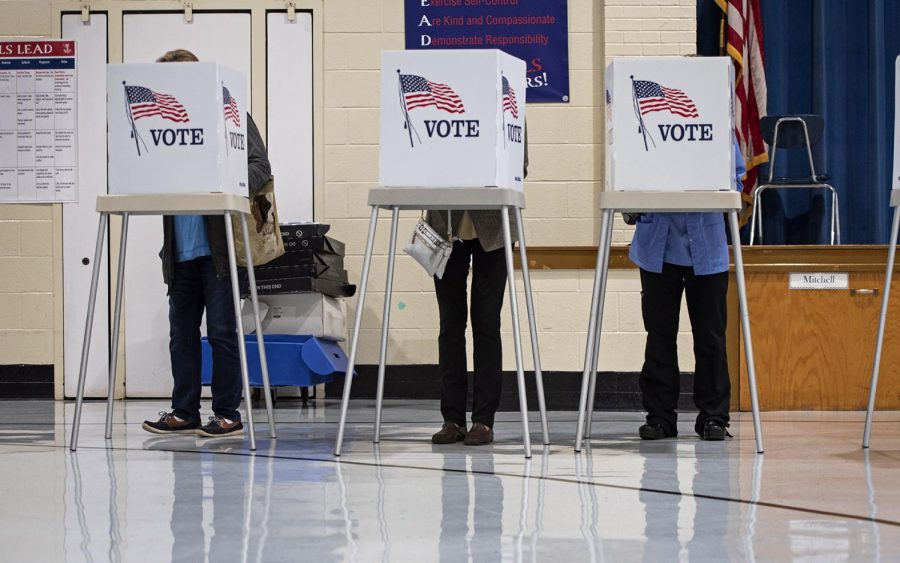College towns go blue, aiding Beshear in governor race
November 12, 2019
In last week’s gubernatorial election, most of the counties with public state colleges voted Democrat, a sharp turn from the 2015 election, in which most college counties voted Republican.
When incumbent Gov. Matt Bevin was elected in 2015, Warren, Madison and Campbell counties — which are home to WKU, Eastern Kentucky University and Northern Kentucky University — voted Republican. These counties voted for Attorney General Andy Beshear on Nov. 5, helping him to win the election by less than 5,000 votes.
These counties have a recent history of voting Republican, with all but Jefferson and Fayette voting for President Donald Trump in the 2016 presidential election.
In Tuesday’s election, over 42% of Kentucky’s eligible voters turned out to vote, which was over 11% better than the state’s projections.
Dewey Clayton, a political science professor at the University of Louisville, referred to the voter turnout as a “phenomenon.”
“I was not surprised Jefferson County went for Beshear,” Clayton said. “It rained here [Tuesday]. It’s an off year election. I really was surprised that people did come out. That’s what surprised me, the turnout.”
The Young Democrats chapter at the University of Louisville made an effort to get Beshear elected by volunteering with the campaign, the Democratic party of Kentucky and super PACs, said Ariana Velasquez, a senior at the University of Louisville and vice president of recruitment and expansion of Kentucky’s Young Democrats.
“I assumed that Louisville would go for Beshear,” Velasquez said. “I would not expect the 49% voter turnout, it was absolutely phenomenal. I fully contributed to the grassroots campaign, knocking on doors. The canvasers are what did it.”
Exit polling data from 2019 Collaborative Kentucky Exit Poll showed Beshear won voters under 40 at 62.1%, while 33.7% of the group voted for Bevin. Beshear polled well with people who have college experience, as 59.8% of college graduates voted for Beshear, as did 53.9% of those with some college experience but no degree. Bevin only got 38.6% of the vote of college graduates, and only 45% of the vote of those with some college experience.
The race was tight, especially in northern Kentucky. Two red counties in the region turned blue: Kenton County and Campbell County. Beshear won both counties by a slim margin. Bevin won Campbell County by 2,358 votes in his 2015 run for governor. The roles were switched this year, as
Beshear won the county by 1,756 votes. All but one county holding a public state university turned or remained blue. The exception was Calloway County, home to Murray State University.
“I know there were several students leaving Murray to go back home to make sure they got to vote too,” said Drew Seib, associate professor and interim department chair of political science at Murray State University. “They were making the effort, even outside of Murray.”
Seib said students were paying attention to education, an issue that impacts them when it came time to vote.
James Masterson, an associate professor of political science at Morehead State University — located in Rowan County, which voted Republican in 2016 — said in general, many people voted because of the university.
“Many of our students vote outside the county, so it’s hard to ascertain how their votes in the county perhaps affected the outcome,” Masterson said.
Masterson said another reason that these counties may have gone Democrat in this election is the presence of hospitals and health care workers in these areas, another popular topic in this election.
“People were pretty excited about this election and I think they turned out in higher numbers than they have in any of the last four governor races,” Masterson said.
News reporter Cassady Lamb can be reached at [email protected]. Follow her on Twitter at @ lambp0p.
News reporter Lily Burris can be reached at 270-745-6011 and [email protected]. Follow her on Twitter at @lily_burris.
























